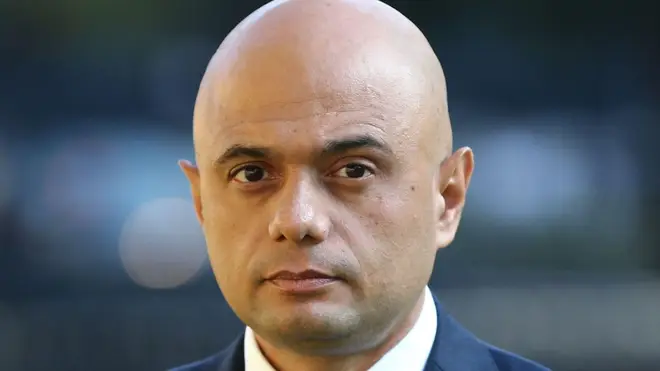
Nick Ferrari 7am - 10am
14 September 2021, 15:18 | Updated: 15 September 2021, 05:40

Health Secretary Sajid Javid today confirmed two sets of plans for England to deal with Covid-19 as the country heads towards winter.
The Covid winter plan sets out options for either a best or worst case scenario for England, depending on developments with the virus.
The intention is to find the best way to help the country live with Covid without having to introduce social and economic restrictions, Mr Javid explained.
It comes as it was also announced that Covid booster jabs would be introduced as soon as next week for people over 50.
Prof Jonathan Van Tam said the country had a "bumpy winter ahead", especially with flu and norovirus expected to hit hard as well.
Read more: Covid booster jabs to start from next week, Health Secretary tells MPs

Health Secretary outlines Winter coronavirus plan B
The main option means more powers will be removed from the Government under the Coronavirus Act, with only a few "essential" rules kept in place for responding to the pandemic.
There are five pillars to the plan, laid out by the Health Secretary:
The Government is also set to remove some powers, including the ability to close schools and universities under the Coronavirus Act.
Mr Javid branded it "a comprehensive plan to steer this country through the autumn and winter".

Sajid Javid: The NHS is preparing to from next week offer Covid-19 vaccine booster doses
Due to the unpredictability of the virus, the Government has also prepared contingency plans in the event things take a turn for the worse.
Rules that have been retained as part of a back-up plan include:
The Health Secretary told MPs: "Any responsible Government must prepare for all eventualities, and although these measures are not an outcome anyone wants, it's one we need to be ready for just in case."
He said the UK especially needed to be "on guard" for any variants which could "escape" the protection of vaccines, and he could not rule out more restrictions if such a variant emerged.
Read more: Everything you need to know about the Covid-19 jab booster programme

Theo Usherwood rounds up Covid winter plan
A Number 10 spokesperson said there was no specific benchmark for when or if Plan B is introduced.
"As we did with the road map, we never looked to one single metric to decide when to act," they said.
"It is important to take a holistic approach and consider a range of data."
Speaking after the plan was set out at Tuesday's Cabinet meeting, Prime Minister Boris Johnson said: "We must not be complacent as we approach what could be a challenging autumn and winter.
"This plan is informed by the latest scientific advice on controlling the virus.
"Since we moved to Step 4 in July, there has been huge progress and the public has been learning to live with the virus without significant restrictions on businesses and individual freedoms."